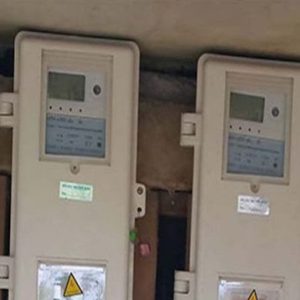The Nigerian Electricity Regulatory Commission (NERC) on Friday said that the Meter Asset Provider (MAP) regulation has stopped the electricity Distribution Companies from collecting energy and service charges after two weeks of power outage.
Its chairman, Prof. James Momoh, broke the news at the Abuja Electricity Distribution Company (AEDC) launch of the MAP in Abuja.
The MAP regulation, according to the General Manager, Finance and Management Services, Mr. Abudukadir Shetima, who represented him, has insisted the meters must be installed not later than 10 days after payment.
He added that should the DisCo refuse to replace a malfunctioning meter after two days, the customer is not expected to make any payment.
He noted the commission, the distribution companies and the customers have their deadline to provide the meters to the customers at the required time.
He said the regulation was designed in a manner the consumer that regards the consumer as the king in the Nigeria Electricity Supply Industry (NESI) value chain.
The customer, he said, is expected to have the best services he can have.
According to him: “Deadlines were provided in the regulation for the DisCos, even the commission so that we don’t delay so that the customers get the service at the time that it is required.
“For instance, if a
meter is about to be installed, it must be installed within 10 days of
making payment. There will be sanctions of that deadline is not met.
“Number
two, to ensure there will be sanction the MAP has been asked to provide
a bank performance guarantee that will be called upon. So they will
lose money if they delay in providing the meters even by one day.
“Number
two, if the meters get bad, they will be replaced by the MAP without
any payment for the entire ten years period. If the meters don’t work
they must be replaced within two days, if they are not replaced within
two days, the customer will not make the monthly customers service
charge payment. That payment will be seized.
“Another part of the regulation is that if there is a prolonged outage and they are out of electricity for months, in addition to other measure that the commission is taking to address those kind of scenarios, the customer will not pay for the meter service charge and will not even pay for the electricity if there is outage for more than two weeks.”
Listing the objective of the regulation, Momoh said the first important objective is the removal of estimated billing in order to remove the controversies around it.
He added: “The customers are happy to make the payment. The second issue is revenue assurance, happy customers will be willing to pay.
“Nigerians are willing to pay for the services they can get so that there will be revenue assurance and that will impact on the industry as a whole. Currently, the revenues in the industry are nit sufficient to enable investments and better services. So, it is like a vicious circle and this this metering is intended to correct that problem.”
Speaking, the AEDC Managing Director, Engr. Ernest Mupwaya, revealed that altogether the company has planned to meter the customers in its franchise areas with 900,000 meters.
He said that bearing in mind that the customers would increase, the meter vendors would also cater for their metering.
He said: “In all, 900,000 customs have been scheduled for metering in AEDC franchise area in the first instance. Being a moving target, we are aware that the number may increase and as it does, the vendors will take them along.”
The representative of the Federal Competition and Consumer Protection Council, Omajo Nwachukwu, warned the parties not to compromise the process in the implementation of the regulation.
She insisted that customers that are not comfortable with buying their meters with loans from the commercial banks should be allowed to purchase them directly from the Meter Assets Providers
